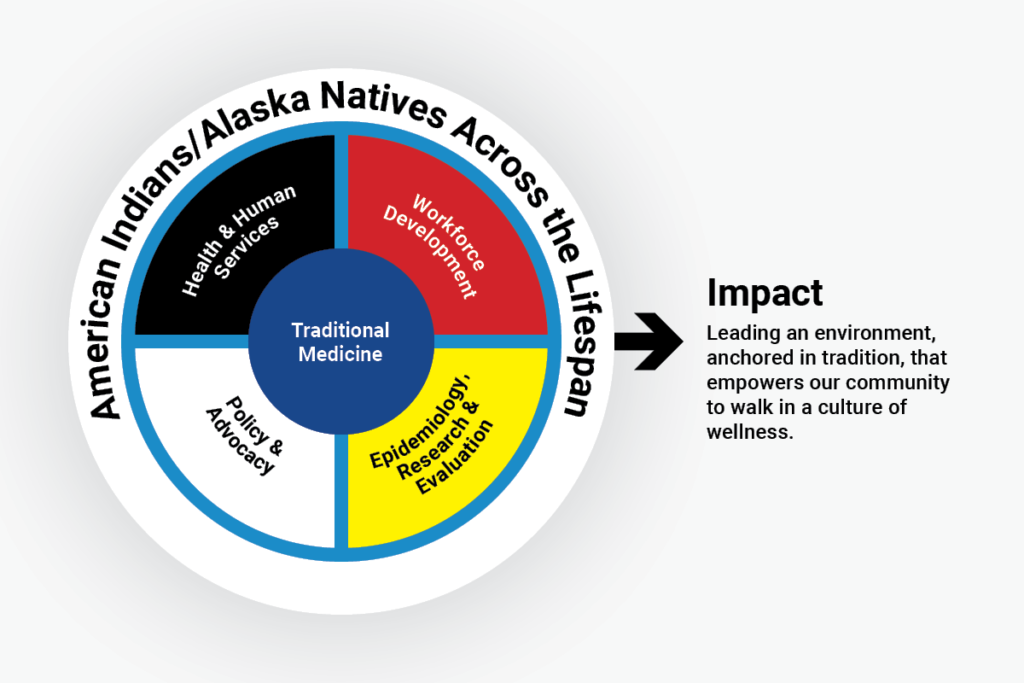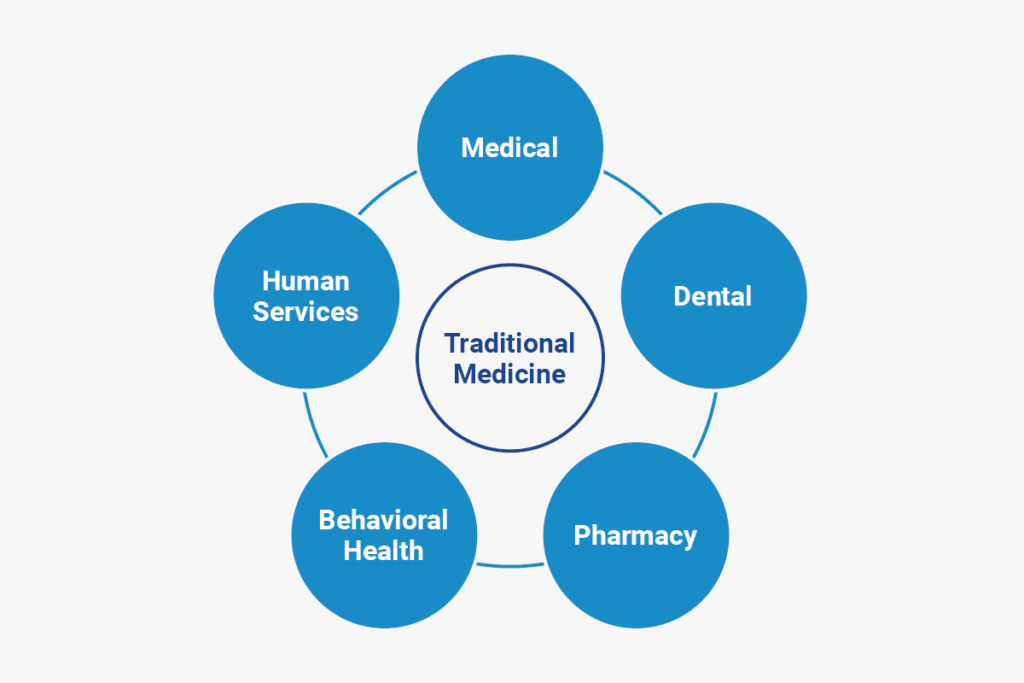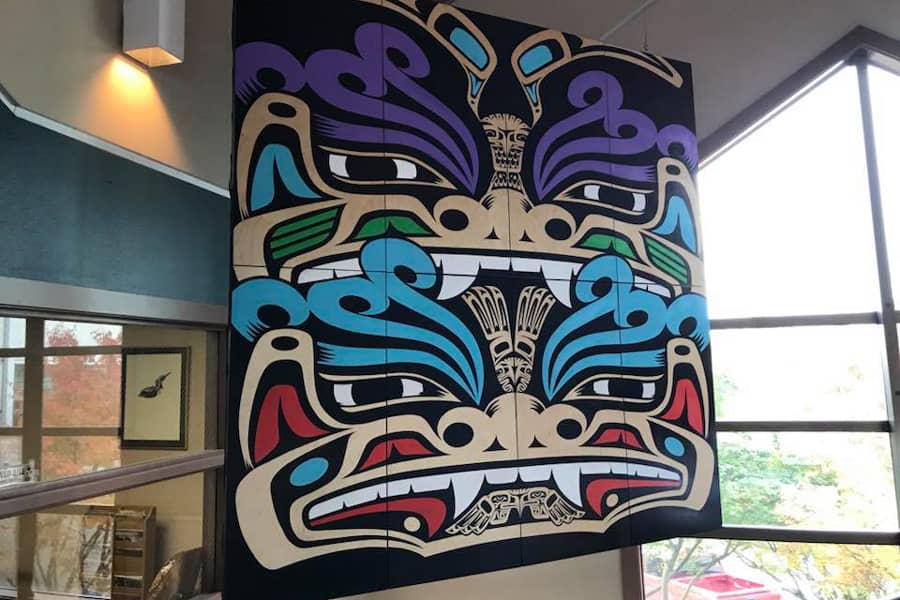In 2015, Seattle Indian Health Board brought in new leadership that quickly took steps to expand on the organization’s rich history in advocacy, data research, workforce development, and health and human services. By harnessing the Indigenous knowledge that already existed within the organization and identifying the areas that needed growth, Seattle Indian Health Board developed an organizational model that placed Traditional Medicine at the center of everything it does.
We call this model Indigenous Knowledge Informed Systems of Care.
In just a few short years, the organization has been able to achieve the goals it set out to accomplish and now has the staff, knowledge, and resources that allow us to implement Indigenous Knowledge Informed Systems of Care throughout all aspects of our work in order to provide holistic care to our relatives and community.

Health and Human Services
The Indigenous Knowledge Informed Systems of Care model allows us to fully integrate our health and human services and care for the whole person when treating relatives.
Our staff’s Indigenous knowledge informs how we provide culturally attuned health and human services for our relatives, which doesn’t exist at other health facilities.
Our model is unique because it is rooted in traditional health practices and because it integrates all of the services we offer. Often, integration stops after medical and behavioral health, but we understand that there are health precursors in other areas that require collaboration with providers who specialize in other areas.
This model allows us to become healthier as individuals and as a community.


